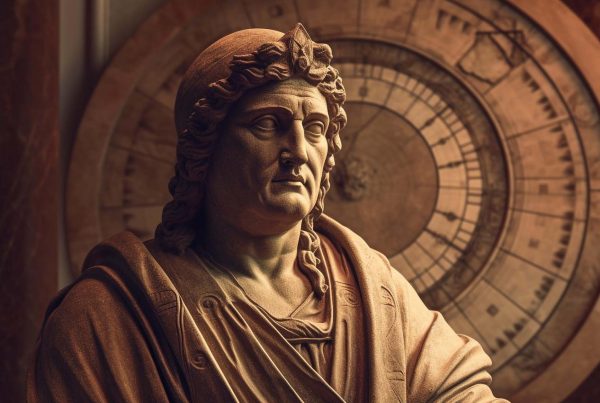 PRAGMATISM
PRAGMATISM
 INTUITIONISM
INTUITIONISM
INTUITIONISM
 PLATO
PLATO
PLATO
 PROPOSITIONAL CALCULUS (PROPOSITIONAL LOGIC)
PROPOSITIONAL CALCULUS (PROPOSITIONAL LOGIC)
PROPOSITIONAL CALCULUS (PROPOSITIONAL LOGIC)
 STRATEGIC WRITING CHOICES FOR PHILOSOPHY CLASS
STRATEGIC WRITING CHOICES FOR PHILOSOPHY CLASS
STRATEGIC WRITING CHOICES FOR PHILOSOPHY CLASS
 STRUCTURALISM
STRUCTURALISM
STRUCTURALISM
 PYTHAGOREANISM
PYTHAGOREANISM
PYTHAGOREANISM
 WHAT PHILOSOPHY PROFESSORS WANT FROM STUDENT WRITERS
WHAT PHILOSOPHY PROFESSORS WANT FROM STUDENT WRITERS
WHAT PHILOSOPHY PROFESSORS WANT FROM STUDENT WRITERS
 LOGICAL ATOMISM
LOGICAL ATOMISM
LOGICAL ATOMISM
 THE ARGUMENTATIVE PAPER
THE ARGUMENTATIVE PAPER
THE ARGUMENTATIVE PAPER
 THOMISM
THOMISM
THOMISM
 EXISTENTIALISM
EXISTENTIALISM
EXISTENTIALISM
 TRANSCENDENTAL IDEALISM
TRANSCENDENTAL IDEALISM
TRANSCENDENTAL IDEALISM
 HERMENEUTICS
HERMENEUTICS
HERMENEUTICS
 FORMS OF PHILOSOPHICAL WRITING
FORMS OF PHILOSOPHICAL WRITING
FORMS OF PHILOSOPHICAL WRITING
Logic
Books
-
Zen Flesh, Zen Bones: A Collection of Zen and Pre-Zen Writings
$9.99 -
Genesis and Structure of Hegel’s Phenomenology of Spirit (English and French Edition)
$115.99 -
Michel de Montaigne on Friendship (Grapevine edition)
$0.49 -
The Problem of Genesis in Husserl’s Philosophy
$44.00 -
Meditations
$8.99 -
The Philosophy of Hegel as a Doctrine of the Concreteness of God and Humanity: Volume One: The Doctrine of God (Volume 1) (Topics In Historical Philosophy)
$55.00 -
The Mindful Athlete: Secrets to Pure Performance
$15.89 -
Meditations (Penguin Classics)
$8.44 -
On the Infinite, the Universe and the Worlds: Five Cosmological Dialogues (Collected Works of Giordano Bruno Book 2)
$7.50 -
Covenant and the Jewish Conversion Question: Extending the Thought of Rabbi Joseph B. Soloveitchik (Jewish Thought and Philosophy)
$119.99 -
Mao Zedong: The Complete Works Volume 1
$15.99 -
How to Know a Person: The Art of Seeing Others Deeply and Being Deeply Seen (Random House Large Print)
$32.00 -
Practicing Mindfulness: 75 Essential Meditations to Reduce Stress, Improve Mental Health, and Find Peace in the Everyday
$14.99 -
Theologico-Political Treatise
$7.99 -
Inspired Knowledge in Islamic Thought (Culture and Civilization in the Middle East)
$68.95 -
Big Panda and Tiny Dragon
$12.40
Reexamining Spacetime Substantivalism: A Critique of Modal Arbitrariness and Determinism in Teitel’s Framework
Reexamining Spacetime Substantivalism: A Critique of Modal Arbitrariness and Determinism in Teitel’s Framework
Rule-Following and Artificial Intelligence: A Kripkean Perspective
The Eternal Coexistence of Consciousness and Spacetime: A Philosophical Inquiry
Embracing Contradiction: An In-Depth Analysis of Dialetheism
Analysis of, and Responses to Edmund Gettier’s “Is Justified True Belief Knowledge?”
The Unstable Foundation: A Critique of the Ontological Proof of God’s Existence
Meta-Modal Actuality: A Dynamic Framework for Possibility, Actualization, and Causality
Killing, Morality, and the Human Condition: A Philosophical Investigation
The Intricacy of Existence: A Philosophical Exploration of Complexity, Contingency, and Divine Agency
The Ethics of Procreation and the Rational Acceptance of Life: A Critical Engagement with Weinberg’s Argument
Imagination, Consciousness, and the Nature of the Soul: A Philosophical Inquiry
The Interplay of Karma, Rebirth, and Non-Self in Buddhist Philosophy: A Metaphysical Inquiry
Metaphysical Perspectives: A Comparative Analysis of Theism and Atheism
The Infinite Universe, Death, and the Search for Meaning: A Philosophical Exploration of Existence, the Divine, and Human Mortality
The Unconscious Artistry of Artificial Intelligence: A Modern Reflection on Spinoza’s God and the Blind Watchmaker
The Ethics of Procreation and the Rational Acceptance of Life: A Critical Engagement with Weinberg’s Argument
- Atomos
- AESTHETICS
- ENVIRONMENTAL PHILOSOPHY
- EPISTEMOLOGY
- ETHICS
- EXISTENTIALISM AND PHENOMENOLOGY
- FEMINIST PHILOSOPHY
- GLOBAL AND COMPARATIVE PHILOSOPHY
- HISTORICAL PERIODS OF PHILOSOPHY
- LOGIC
- METAPHYSICS
- PHILOSOPHY OF EDUCATION
- PHILOSOPHY OF HISTORY
- PHILOSOPHY OF LANGUAGE
- PHILOSOPHY OF LAW
- PHILOSOPHY OF MIND
- PHILOSOPHY OF SCIENCE
- PHILOSOPHY OF TECHNOLOGY
- POLITICAL AND SOCIAL PHILOSOPHY
Terms & Concepts































































